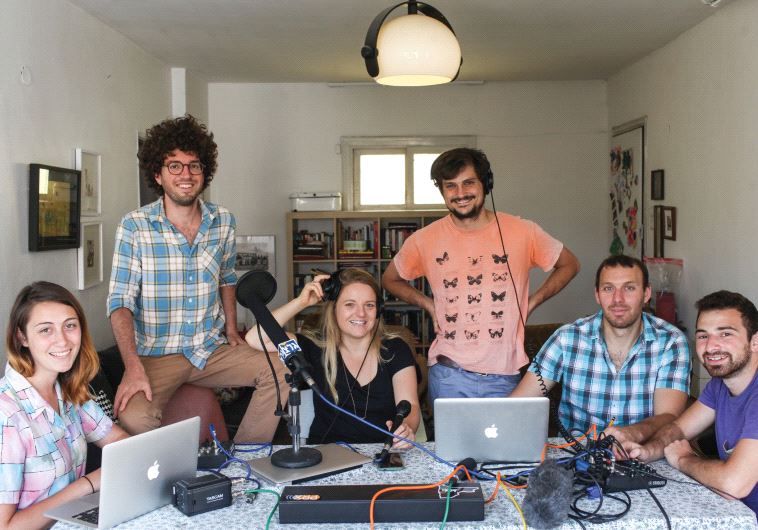This Israeli life
‘Israel Story’ brings its slice-of-life radio initiative to the Mekudeshet Festival in Jerusalem
 RADIO DAYS: From left; Barry Finkel, Mishi Harman, Maya Kosover, Yochai Maital, Ro’ee Gilron and Shai Satran. (photo credit: AVISHAG SHAR YASHUV)ByARIEL DOMINIQUE HENDELMAN
RADIO DAYS: From left; Barry Finkel, Mishi Harman, Maya Kosover, Yochai Maital, Ro’ee Gilron and Shai Satran. (photo credit: AVISHAG SHAR YASHUV)ByARIEL DOMINIQUE HENDELMAN